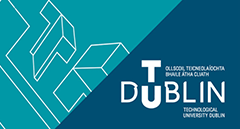Author ORCID Identifier
https://orcid.org/0009-0007-1839-9362
Abstract
The United Nations (UN) 2030 Agenda and Sustainable Development highlights the value of the Sustainable Development Goals (SDGs) in enabling societal progress. Contemporary society needs to consider sustainable development in a broader context where equity, diversity, and inclusion are integral to design of educational systems. Education can act as a disruptor that brings change to existing economic growth models misaligned with the needs and demands of modern society. As we transition to economic models that are more attuned to the needs of global society and planet, access to education, natural resources, and human talent is crucial for sustaining development, and allowing societies to continue advancing. However, it is imperative to deliberate on the necessity of adopting an alternative perspective on economic growth and its facilitation while adhering to the principles of sustainability.
Inclusive, diverse, and transdisciplinary education can help to enhance quality learning, social equity, and resilience in nations, fostering intellectual empowerment, lifelong learning values, and a cohesive society. The prominence of education and its partners, training, and awareness has been recurrently underscored in UN assemblies, illuminating its capacity to address concerns such as climate change, violations of human rights, and degradation of the environment. Conversely, minimal headway in this realm indicates enduring and formidable hurdles obstructing the progress of education. Broadening the reach of education is fundamental for supporting an improved future. Although the expansion of educational opportunities is applauded, it is insufficient if the requirements of global economies are not considered. A thriving community requires substantial investment, and the capability of world economies to bring about change through capital investment is finite and dependent on access to scarce resources and their level of economic development. In addition, the fact that education has become an unattainable luxury good contributes to the widening gaps and distinctions between wealthier and less affluent nations. As such, there is a need to critically introspect on the role that education plays in driving sustainable development.
Creative Commons License

This work is licensed under a Creative Commons Attribution-NonCommercial-Share Alike 4.0 International License.
Recommended Citation
Kamphambale, Daniel; Morales, Lucia; MacMahon, Cormac H.; and Coetzer, Jon-Hans
(2024)
"A Critical Reflection on the Importance of Education for Sustainable Development,"
Irish Journal of Academic Practice:
Vol. 11:
Iss.
2, Article 2.
doi:https://doi.org/10.21427/x2d9-3f20
Available at:
https://arrow.tudublin.ie/ijap/vol11/iss2/2
DOI
https://doi.org/10.21427/x2d9-3f20

